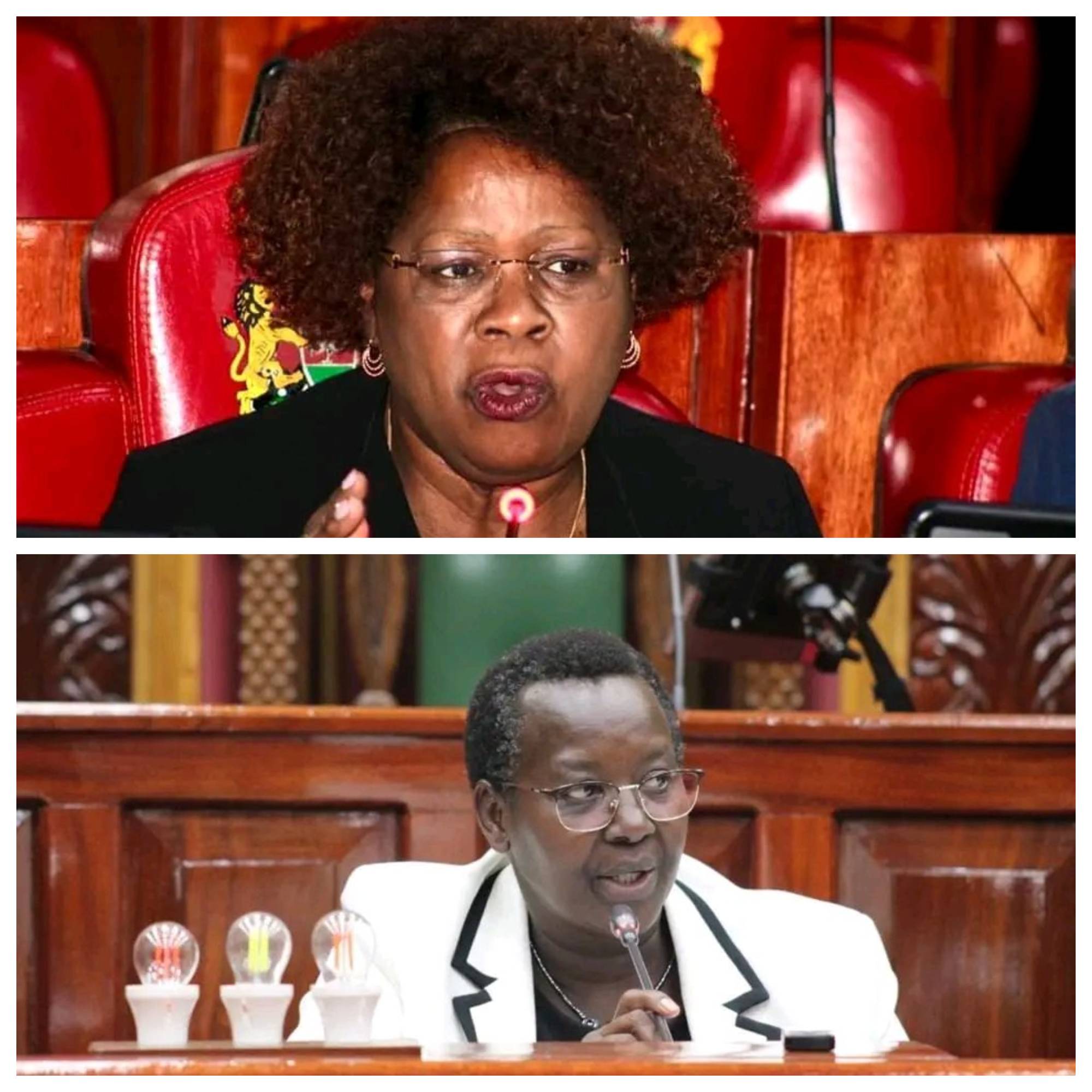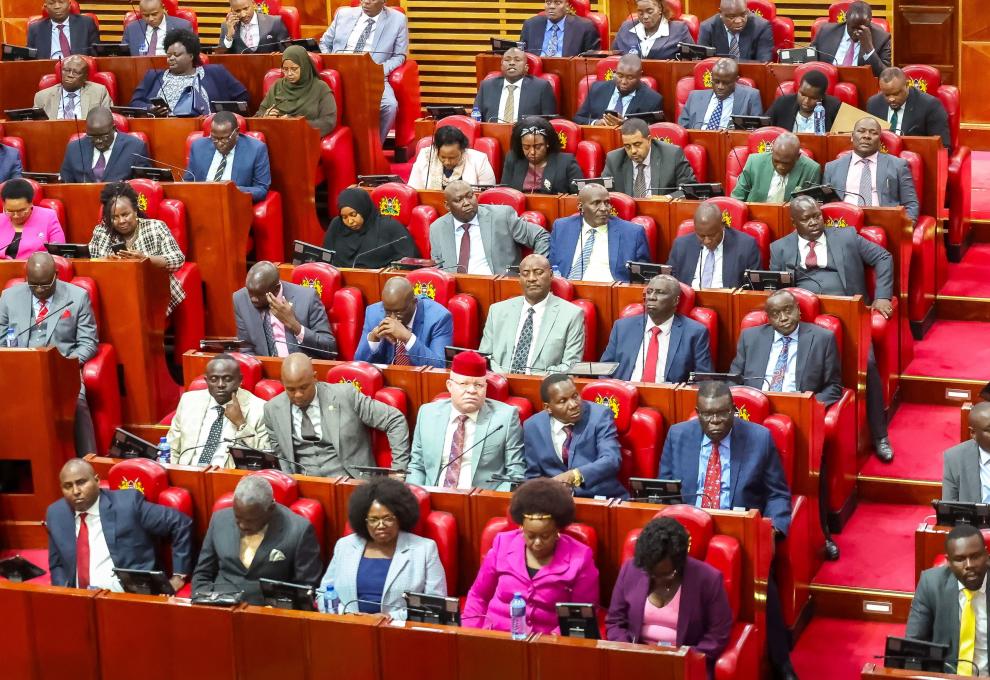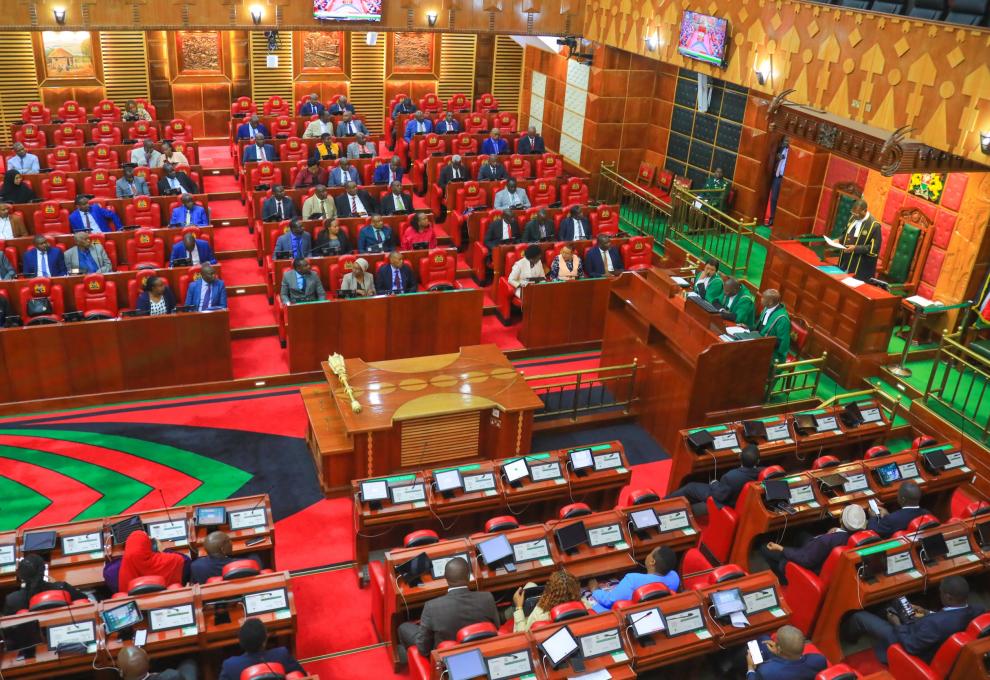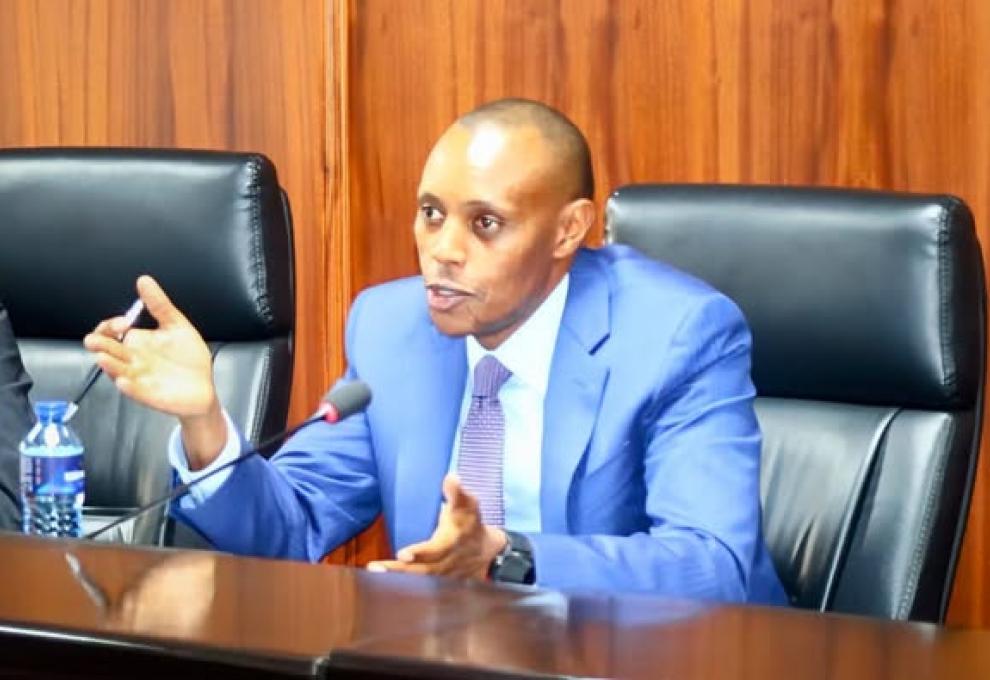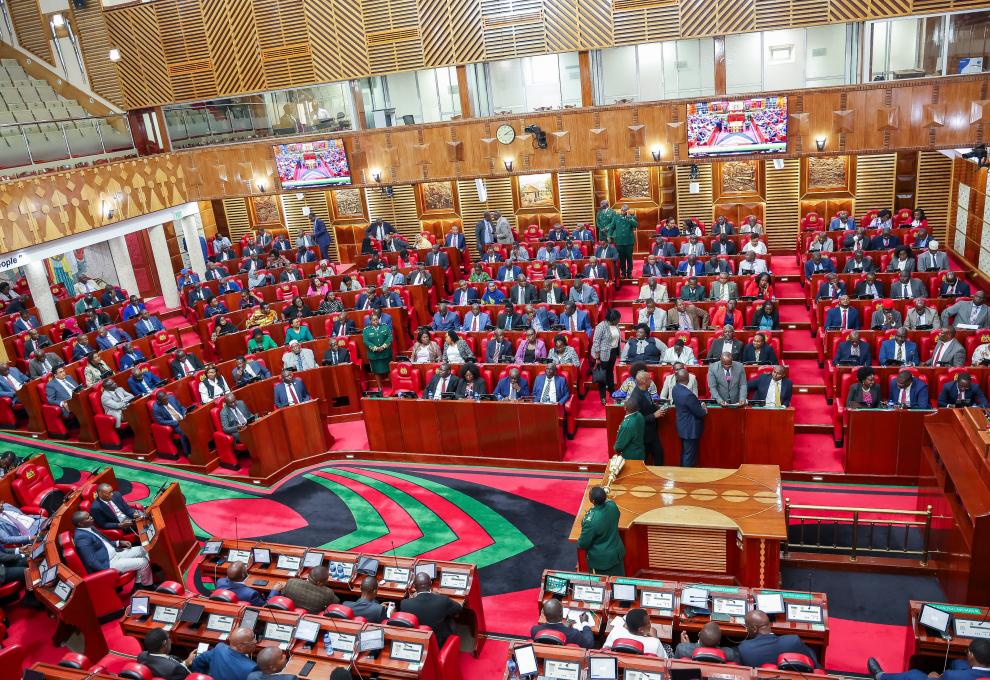𝐏𝐔𝐁𝐋𝐈𝐂 𝐏𝐄𝐓𝐈𝐓𝐈𝐎𝐍𝐒 𝐂𝐎𝐌𝐌𝐈𝐓𝐓𝐄𝐄 𝐂𝐎𝐍𝐓𝐈𝐍𝐔𝐄 𝐏𝐑𝐎𝐁𝐄 𝐎𝐍 𝐏𝐎𝐋𝐋𝐔𝐓𝐈𝐎𝐍 𝐎𝐅 𝐑𝐈𝐕𝐄𝐑 𝐀𝐓𝐇𝐈
The National Assembly’s Public Petitions Committee held a meeting with the Cabinet Secretary for Water, Sanitation, and Irrigation Hon. Alice Wahome. Hon. Wahome appeared before the Committee to shed light on several issues including the pollution of River Athi, the desiltation of Matinga Dam, and the need for long-term solutions to address perennial water shortage at the ward level in Kenya.
During the meeting chaired by the Committee vice chairperson Hon. Janet Siteinei (Turbo), Members raised concern with a situation where the agencies responsible for preventing such pollution claim to be "toothless" and stripped of their powers, thus raising questions about their effectiveness and ability to fulfil their mandates.
In response, CS Wahome highlighted the establishment of an Inter-Agency Technical Committee dedicated to safeguarding rivers and managing pollution. She emphasized that significant interventions are currently being implemented in this regard, and a comprehensive report detailing these efforts will be submitted to the Committee.
Regarding the desiltation of Matinga Dam, CS Wahome informed the Committee that the Tana Athi Water Works Development Agency has been instructed to conduct thorough engineering studies and create detailed technical designs for the rehabilitation of the dam embankment, spillway, and the fencing of the dam reservoir area.
Addressing the petition for a ward-based solution to the persistent water shortage in Kenya, the CS informed Members that the Water for Schools Programme has been implemented to extend its coverage across the country. The primary objective of this programme is to ensure access to water directly for the people, emphasizing the importance of bringing water resources closer to communities in need.
In addition, CS Wahome elaborated on the forthcoming 'Kenya Groundwater Mapping Program' that will be executed in collaboration with county governments, state corporations, and development partners. The primary objective of this program, along with the Horn of Africa resilience project, is to rehabilitate more than 400 rural water schemes and, if required, drill new boreholes to address water scarcity challenges.



